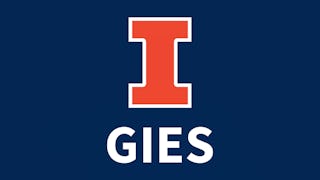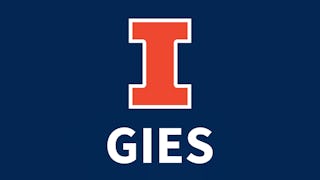This course provides an introduction to the U.S. federal income taxation of pass-through business entities, including Subchapter S corporations, partnerships, and limited liability companies. The course focuses on the relevant provisions of Subchapters S and K of the Internal Revenue Code, as well as related Treasury Regulations and judicial opinions, governing the formation, operation, and termination of pass-through entities. Practical in-class study problems facilitate self-discovery of technical tax knowledge along with the development of a variety of professional skills and attitudes.


Taxation of Business Entities II: Pass-Through Entities
This course is part of U.S. Federal Taxation Specialization

Instructor: Michael P Donohoe, PhD, CPA
9,705 already enrolled
Included with
(90 reviews)
Recommended experience
What you'll learn
Determine the tax effects of forming a partnership, partnership distributions, and partnership terminations.
Distinguish between the types of entities treated as partnerships for tax purposes.
Apply partnership tax provisions to limited liability companies and limited liability partnerships.
Identify corporations that qualify for the Subchapter S election.
Skills you'll gain
Details to know

Add to your LinkedIn profile
56 assignments
See how employees at top companies are mastering in-demand skills

Build your subject-matter expertise
- Learn new concepts from industry experts
- Gain a foundational understanding of a subject or tool
- Develop job-relevant skills with hands-on projects
- Earn a shareable career certificate

There are 8 modules in this course
In this module, you will become familiar with the course, your instructor, your classmates, and our learning environment. This orientation will also help you obtain the technical skills required to navigate and be successful in this course. Next, we begin an examination of the U.S. federal tax treatment of partnerships. The first lesson will examine the background and basic concepts of partnerships, including the conceptual framework that governs nearly all tax rules for partnerships, and special basis concepts that allow for a single layer of taxation. The next lessons shift to the partnership life cycle with a focus on partnership formation. We will analyze the non-recognition provision for property contributions in exchange for a partnership interest, as well as basis and holding period rules, and some of the most common exceptions to the non-recognition provision.
What's included
31 videos7 readings12 assignments2 discussion prompts1 plugin
In this module, you will learn about partnership operations. We will first examine partnership income measurement and reporting. The next two lessons will examine a partner’s distributive share of partnership income, and adjustments to a partner’s outside basis in the partnership. From there we will consider the deduction for qualified business income on a partner’s tax return, limitations on the deductibility of partnership losses by the partner, and transactions between the partnership and partner.
What's included
24 videos2 readings6 assignments
In this module, you will be introduced to the tax treatments of partnership distributions. We will first determine what is a distribution and how it is different from a partner’s share of partnership earnings. Partnership distributions will be further classified into proportionate operating, proportionate liquidating, and disproportionate distributions. We will then discuss the nonrecognition principle of partnership distributions, loss limitations, and exceptions to these general rules.
What's included
24 videos2 readings8 assignments
This module examines the tax implications of partnership sales and terminations. The first lesson will focus on the sale of a partnership interest. The next lesson considers a special basis adjustment used to adjust for discrepancies between inside and outside basis that may arise after a sale of a partnership interest. The third lesson examines the tax effects of many non-sale dispositions of a partnership interest, such as transfers to a corporation, like-kind exchanges, gifts, and death of a partner. The fourth lesson examines technical tax termination of a partnership, which can occur through sale, liquidation, or operation of law.
What's included
17 videos2 readings6 assignments
This module examines several other types of pass-through entities including limited liability companies (LLC), limited liability partnerships (LLP), family partnerships, and Subchapter S corporations. The first lesson examines LLCs, which combine partnership taxation with the limited liability of corporations. The next lesson considers limited liability partnerships, which operate similar to general partnerships but with significant liability exposure differences. Family partnerships are considered in the third lesson. The last lesson examines the basic attributes of Subchapter S corporations, which are entities incorporated under state law but taxed as a pass-through entity for federal income tax purposes.
What's included
14 videos2 readings7 assignments
In this module, we will further examine S corporations. We will explore income measurement and allocation methods for passing through earnings to the shareholders, including the differentiation between ordinary income items and separately stated items. Next, we will discuss shareholder basis. We will also explore loss limitations with respect to shareholder tax basis and at-risk basis. We will then consider the tax effects of distributions to shareholders. Finally, we will discuss exceptions that subject S corporations to entity level taxes.
What's included
24 videos2 readings6 assignments
In this module, you will examine the ethical guidelines that encompass the professional tax practice. The module will begin with a discussion of the mission and authority of the Internal Revenue Service (IRS), the enforcement agency overseeing the professional tax industry. Next, we will highlight the various penalties that can be assessed at the taxpayer level, both civil and criminal. Finally, you will be introduced to the ethical standards imposed upon tax advisors by Circular 230 and the AICPA.
What's included
15 videos2 readings10 assignments
This module directly applies the concepts of corporate and pass-through entity taxation to a comprehensive organizational form dilemma. In the first lesson, you will learn about the organizational form dilemma facing the owner of an entity. The next lessons will analyze four organizational form options: corporation, partnership, limited liability company, and Subchapter S corporation. The final lesson summarizes the analysis and recommends the best organizational form for this dilemma.
What's included
7 videos5 readings1 assignment1 discussion prompt1 plugin
Earn a career certificate
Add this credential to your LinkedIn profile, resume, or CV. Share it on social media and in your performance review.
Build toward a degree
This course is part of the following degree program(s) offered by University of Illinois Urbana-Champaign. If you are admitted and enroll, your completed coursework may count toward your degree learning and your progress can transfer with you.¹
Instructor

Offered by
Explore more from Business Essentials
 Status: Free Trial
Status: Free TrialUniversity of Illinois Urbana-Champaign
 Status: Preview
Status: PreviewUniversity of Illinois Urbana-Champaign
 Status: Free Trial
Status: Free TrialUniversity of Illinois Urbana-Champaign
 Status: Preview
Status: PreviewUniversity of Illinois Urbana-Champaign
Why people choose Coursera for their career




Learner reviews
90 reviews
- 5 stars
86.66%
- 4 stars
8.88%
- 3 stars
2.22%
- 2 stars
0%
- 1 star
2.22%
Showing 3 of 90
Reviewed on Mar 18, 2021
I learn many things from this course , Its help my career to grow up.
Reviewed on May 12, 2020
Michael P Donohoe is a great professor and He explained all the tax provisions very nicely and covered almost the majority of concepts.
Reviewed on Aug 27, 2020
very clear lectures. Would have been helpful for more examples on the partnership part of the course on economic effects

Open new doors with Coursera Plus
Unlimited access to 10,000+ world-class courses, hands-on projects, and job-ready certificate programs - all included in your subscription
Advance your career with an online degree
Earn a degree from world-class universities - 100% online
Join over 3,400 global companies that choose Coursera for Business
Upskill your employees to excel in the digital economy
Frequently asked questions
Once you enroll for a Certificate, you’ll have access to all videos, quizzes, and programming assignments (if applicable). If you choose to explore the course without purchasing, you may not be able to access certain assignments.
You will be eligible for a full refund until 2 weeks after your payment date. You cannot receive a refund once you’ve earned a Course Certificate, even if you complete the course within the 2-week refund period.
Yes! Coursera provides financial aid to learners who would like to complete a course but cannot afford the course fee. To apply for aid, select "Learn more and apply" in the Financial Aid section below the "Enroll" button. You'll be prompted to complete a simple application; no other paperwork is required.
More questions
Financial aid available,

